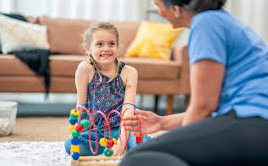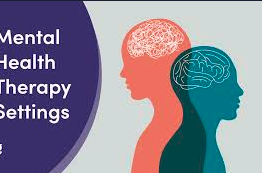Mental Health Therapy for Kids
Introduction
Children today face unique challenges that affect their mental and emotional well-being. Academic pressure, social media influence, bullying, and even family struggles can take a toll on young minds. When left unaddressed, these issues may grow into long-term mental health problems. Fortunately, mental health therapy for kids provides effective strategies to help children develop resilience, manage emotions, and build healthier relationships.
In this article, we’ll explore the importance of child therapy, different approaches used by professionals, signs your child may need support, and practical tips for parents to encourage better mental health outcomes.
Why Mental Health Therapy for Kids Matters
Children’s mental health is just as important as their physical health. Here’s why therapy plays a vital role:
- Early Intervention: Addressing concerns at a young age prevents long-term struggles.
- Healthy Coping Skills: Kids learn tools to manage stress, anxiety, and big emotions.
- Better Academic Performance: Emotional stability enhances focus and school success.
- Improved Relationships: Therapy helps children express themselves and communicate effectively.
- Resilience Building: Kids learn problem-solving and coping strategies for future challenges.
Common Mental Health Challenges in Kids
Mental health therapy for kids addresses a variety of issues, including:
- Anxiety Disorders – excessive worry, fear, or panic.
- Depression – sadness, loss of interest, or withdrawal.
- ADHD (Attention Deficit Hyperactivity Disorder) – difficulties with focus and impulsivity.
- Autism Spectrum Disorder (ASD) – challenges with communication and social interaction.
- Trauma or PTSD – emotional difficulties after stressful events.
- Behavioral Disorders – aggression, defiance, or frequent tantrums.
- Bullying and Peer Pressure – struggles with self-esteem and social acceptance.
Signs Your Child May Need Therapy
Not all kids openly express their struggles, which makes it important for parents to notice warning signs.
Emotional Signs
- Frequent crying or sadness
- Excessive worry or fear
- Mood swings
Behavioral Signs
- Aggression or defiance
- Withdrawal from friends or activities
- Decline in school performance
Physical Signs
- Trouble sleeping
- Changes in appetite
- Frequent headaches or stomachaches without a medical cause
If your child displays multiple signs consistently, seeking professional help is recommended.
Types of Mental Health Therapy for Kids
1. Play Therapy
- Uses toys, games, and creative activities to help kids express feelings.
- Effective for younger children who struggle with verbal communication.
2. Cognitive Behavioral Therapy (CBT)
- Teaches kids how thoughts influence emotions and behavior.
- Helps manage anxiety, depression, and negative thinking patterns.
3. Art and Music Therapy
- Encourages self-expression through drawing, painting, or music.
- Useful for kids with trauma, anxiety, or communication challenges.
4. Family Therapy
- Involves parents and siblings in sessions.
- Improves family communication and problem-solving skills.
5. Group Therapy
- Children share experiences with peers under professional guidance.
- Encourages social skills and reduces feelings of isolation.
6. Trauma-Focused Therapy
- Designed for children dealing with abuse, loss, or traumatic events.
- Helps process emotions safely and build coping mechanisms.
Benefits of Mental Health Therapy for Kids
Therapy is not just about solving problems; it nurtures overall well-being.
- Emotional Regulation: Kids learn to manage anger, sadness, and frustration.
- Improved Confidence: Therapy boosts self-esteem and a positive self-image.
- Better Communication Skills: Children learn to express themselves more clearly.
- Academic Progress: Emotional stability enhances concentration and learning.
- Healthier Friendships: Therapy fosters empathy and conflict resolution skills.
Role of Parents in Supporting Child Therapy
Parents are essential partners in a child’s mental health journey.
- Be Supportive, Not Judgmental: Encourage your child to share without fear.
- Normalize Therapy: Present therapy as a safe and positive step, not a punishment.
- Practice Active Listening: Pay attention to their concerns without interruption.
- Model Healthy Behaviors: Children learn coping strategies by observing parents.
- Follow Professional Guidance: Implement therapist-recommended activities at home.
How to Choose the Right Therapist for Your Child

- Specialization: Ensure the therapist has experience with children’s mental health.
- Approach: Ask about therapy methods (CBT, play therapy, etc.).
- Comfort Level: Your child should feel safe and understood.
- Credentials: Check licenses, certifications, and professional background.
- Collaboration: Look for therapists who involve parents in the process.
At-Home Practices to Support Kids’ Mental Health
Even outside therapy, parents can foster mental wellness.
- Encourage Physical Activity: Daily exercise reduces stress and improves mood.
- Maintain Routine: Consistent schedules provide a sense of stability.
- Practice Mindfulness: Simple breathing exercises can calm anxiety.
- Limit Screen Time: Reduce exposure to social media pressures.
- Promote Healthy Sleep: A bedtime routine helps kids rest better.
- Balanced Nutrition: Healthy meals contribute to stable energy and mood.
Common Myths About Mental Health Therapy for Kids
- “Kids don’t need therapy.”
Reality: Children face emotional challenges just like adults. - “Therapy is only for serious issues.”
Reality: Therapy is preventive as well as corrective. - “Therapists just talk to kids.”
Reality: Many approaches use play, art, and creative methods. - “Parents will be blamed.”
Reality: Therapy focuses on solutions, not assigning blame.
Success Stories: How Therapy Helps Kids Thrive
- Case 1: A 10-year-old struggling with school anxiety improved focus and confidence after CBT.
- Case 2: A 7-year-old coping with parental divorce found comfort through play therapy.
- Case 3: A teenager with low self-esteem developed better coping skills with group therapy.
These examples highlight how therapy can transform a child’s emotional well-being.
Conclusion
Children’s mental health is a crucial part of their overall development. By recognizing signs early and seeking mental health therapy for kids, parents can provide the support their children need to thrive emotionally, socially, and academically. Therapy is not a sign of weakness but a powerful tool that helps children navigate life with resilience and confidence.
Investing in a child’s mental health today ensures a brighter, healthier future tomorrow.
FAQs About Mental Health Therapy for Kids
1. At what age can a child start therapy?
Children as young as 3–4 years old can benefit from therapy, especially play-based methods.
2. How long does therapy usually take for kids?
The duration depends on the child’s needs, but many see improvements within a few months.
3. Can therapy replace medication?
In many cases, therapy alone is effective. However, some children may require both therapy and medication under professional guidance.
4. How do I explain therapy to my child?
Present it as a safe space where they can talk, play, and share feelings without judgment.
5. Will my child’s therapy sessions be private?
Yes, therapists maintain confidentiality, but parents are often included in progress discussions.





